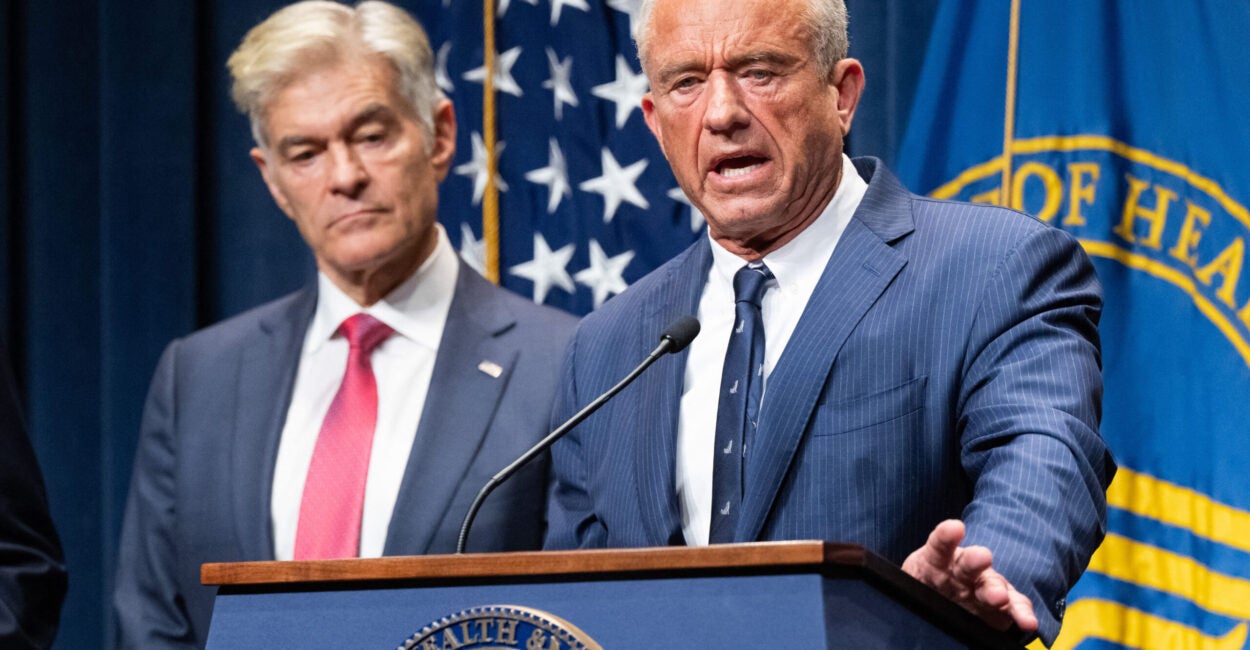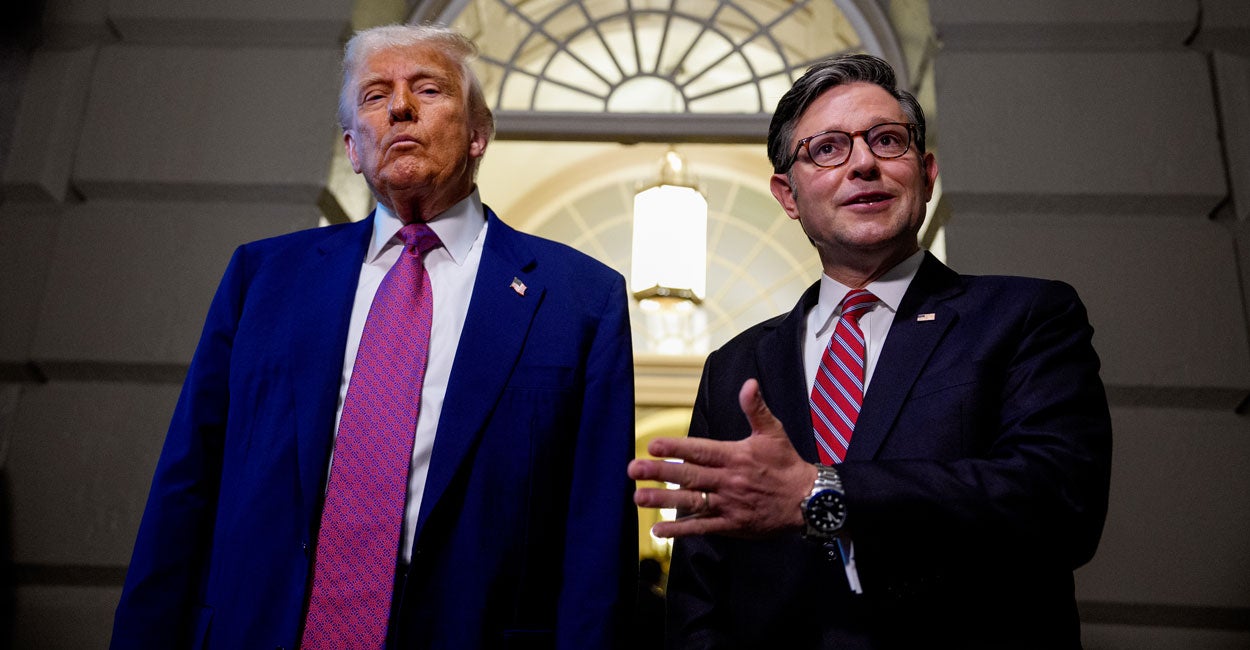
www.dailysignal.com
Medicare Needs Major Reform—Sooner Rather Than Later
Medicare’s financial condition is worsening—and it’s time for our ever-reluctant Congress to start the arduous legislative task of making much-needed changes to the program.
In its 2025 report, the Medicare Board of Trustees is unambiguous: “The sooner solutions are enacted, the more flexible and gradual they can be. Introducing reforms early would give affected individuals and organizations- including health providers, beneficiaries, and taxpayers- more time to adjust their expectations and behavior.”
The trustees provide a wealth of data. According to their report, overall Medicare spending will jump from $1.2 trillion this year to more than $2.3 trillion in 2034.
Meanwhile, the hospital insurance trust fund, part of the program that pays for hospital services, will become insolvent in 2033, meaning that it will not be able to disburse all its promised benefits. At that point, there will be an automatic 11 percent cut in hospital benefit payments, annual cuts and deficits deepening year after year, guaranteeing seniors’ reduced access to vital hospital care.
Given that prospect, Congress has no choice but to act. Lawmakers have never allowed the program to become insolvent. So, the question is not whether Congress will act, but how.
It could adopt the conventional response: higher payroll taxes on working families, cuts in Medicare benefit payments for seniors, or some ugly combination of both. Or it could take a different approach, one that aims to improve the program and build on what works.
Either way, change is inevitable, but, as the trustees advise, that change is much easier to manage when it is gradual and well-planned.
But rapid acceleration of the costs of the supplemental medical insurance trust fund (the fund that pays for Part B physician and Part D prescription drug benefits and services) poses even more challenges.
Fueled overwhelmingly by taxpayer dollars, the supplemental medical insurance fund is today the main driver of Medicare spending. And over the next five years, Part B costs will average 8.8 percent, while Part D costs will grow by 7.1 percent, both galloping far ahead of the projected 4.2 percent growth in the economy (as measured by gross domestic product).
For government spending to outrun the growth of the economy that supports it is obviously “unsustainable,” and, as economist Herb Stein famously remarked, what is unsustainable will stop.
Unlike Part A (the hospital insurance trust fund), which is financed by workers’ payroll taxes, about three-quarters of supplemental medical insurance fund costs are yearly financed by an automatic drawdown of funds from the Treasury—in other words, by direct taxpayer subsidies.
In 2024, 16.1 percent of all federal personal and corporate income taxes were allocated to funding this program. By 2030, that number will jump to 22 percent, and by 2040, it will hit 28 percent—thus crowding out funding for defense, energy programs, and many other federal budget priorities.
Over the next 75 years, Medicare’s “unfunded obligations,” additional taxpayer funds required beyond the program’s dedicated revenues and premiums, will amount to more than $60 trillion. That’s the amount of money required to honor the promises made to Medicare beneficiaries in today’s dollars—a real and debilitating debt.
Discussions of budgetary concerns or debt often overlook the unfunded obligations of Medicare and other expanding entitlement programs.
Beneficiaries’ premiums account for only about 25 percent of these rising costs, but seniors will face big premium hikes and even bigger out-of-pocket increases. The standard monthly Part B premium, for example, is projected to increase from $185 today to $347 in 2034.
Washington’s standard response to rising Medicare costs is to toughen up on price controls or provider payment rules, sometimes bluntly and other times through elaborate adjustments in Medicare’s complex administrative payment formulas. While designed to appear “scientific,” these formulas are, of course, nothing of the sort.
Regardless, the price control strategy produces the same result as does hiking costs: making it more difficult for seniors to access care.
For Medicare Part A, according to the trustees’ most realistic projections, “By 2040, simulations suggest that over 40 percent of hospitals and 50 percent of skilled nursing facilities and home health agencies would have negative total facility margins, raising the possibility of access and quality care issues for Medicare beneficiaries.” In short, a catastrophe.
For Part B (and, specifically, physician services), the trustees report a steady decline in physician reimbursement under the Medicare’s bizarre physician fee schedule.
Medicare physician payment is a mess that, as The Heritage Foundation advises, requires major surgery. In 2011, Medicare doctors were paid 82 percent of the prevailing private rates. By 2023, that fell to 71 percent, and this year it will have declined to 64 percent.
The Trustees warn, “Absent a change in the delivery system or a level of update by subsequent legislation, … [we] expect access to Medicare participating physicians to become a significant issue in the long-term.” Now is the right time to avoid the long term.
Congress and the White House can start by reforming the manageable defects of the increasingly popular Medicare Advantage program, which now covers well over half of all Medicare beneficiaries.
Top of the list should be fixing the program’s payment to health plans. This can be done by disentangling private plan payment from traditional Medicare’s inefficient administrative payment system and instead basing payment to health plans on straight market-based competitive bidding among plans to offer Medicare benefits. Government payment would reflect real free market competition and would result in genuine savings to beneficiaries and taxpayers alike.
In tandem with this payment change, Congress and the White House should remove incentives for fraud and take the guesswork out of trying to pre-assess how much to pay plans with a large number of older and sicker enrollees by instead paying plans additional amounts at the end of the year based on the real extra costs of their older and sicker enrollees. This too would yield substantial savings.
Meanwhile, Congress should eliminate stupid statutory restrictions on benefits, allowing beneficiaries to have tax-free health savings accounts, direct primary care programs, drug coverage in Medicare Advantage medical savings account plans, and Medicare Advantage hospice coverage.
In response to the Medicare trustees’ latest warnings, Congress can “kick the can” down the proverbial road. But they have been doing that for far too long. Annual deficits, debt, and Medicare’s programmatic problems continue to mount—and Congress is running out of road.
The post Medicare Needs Major Reform—Sooner Rather Than Later appeared first on The Daily Signal.

















